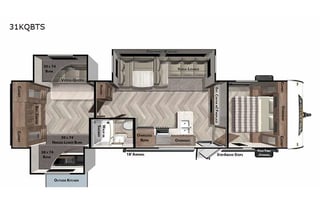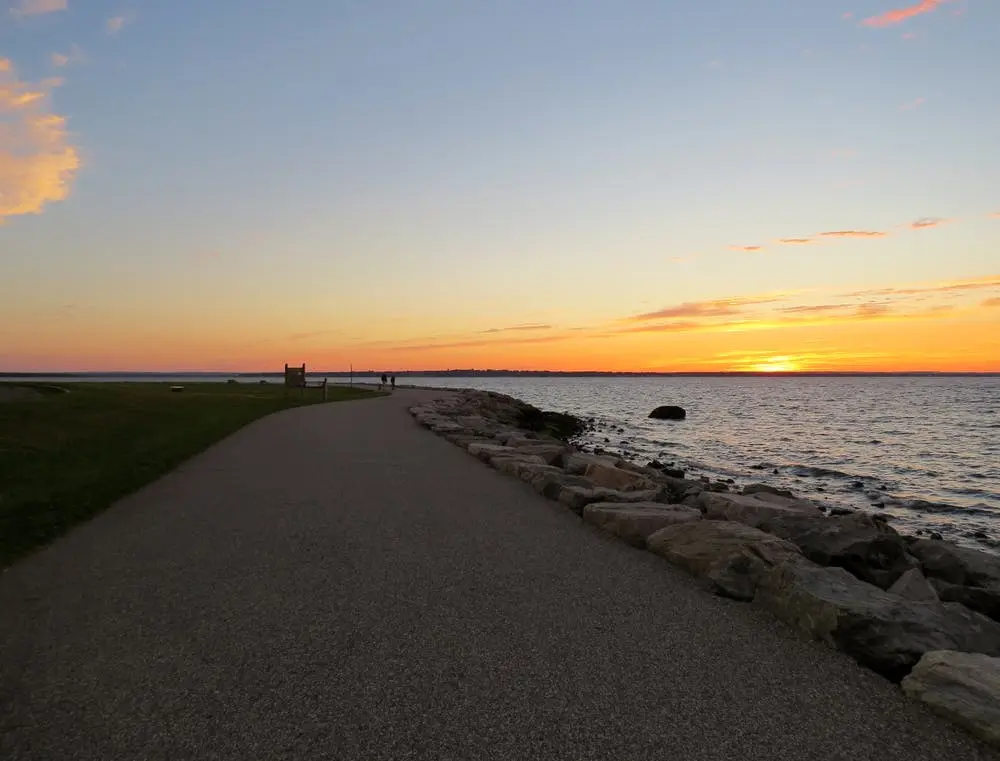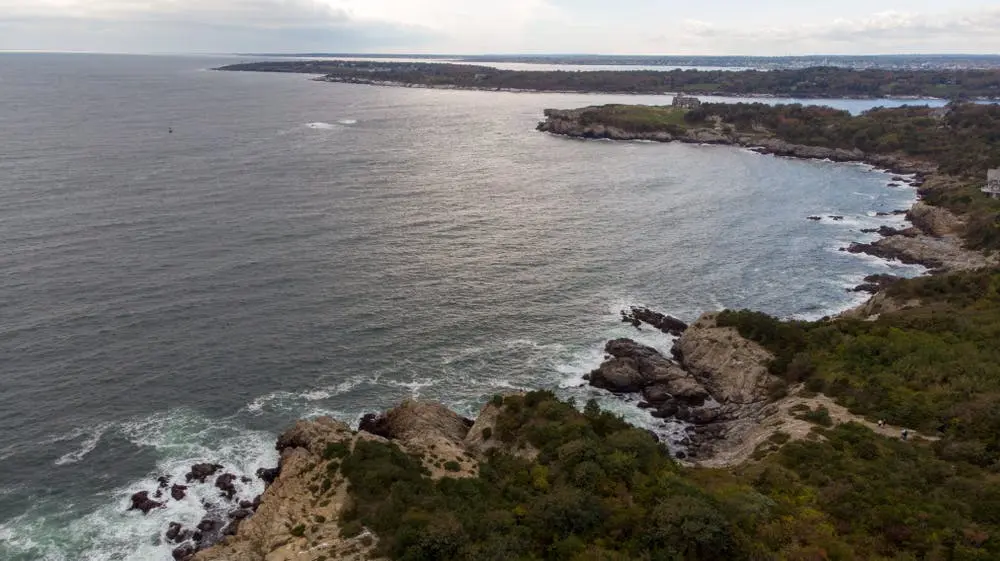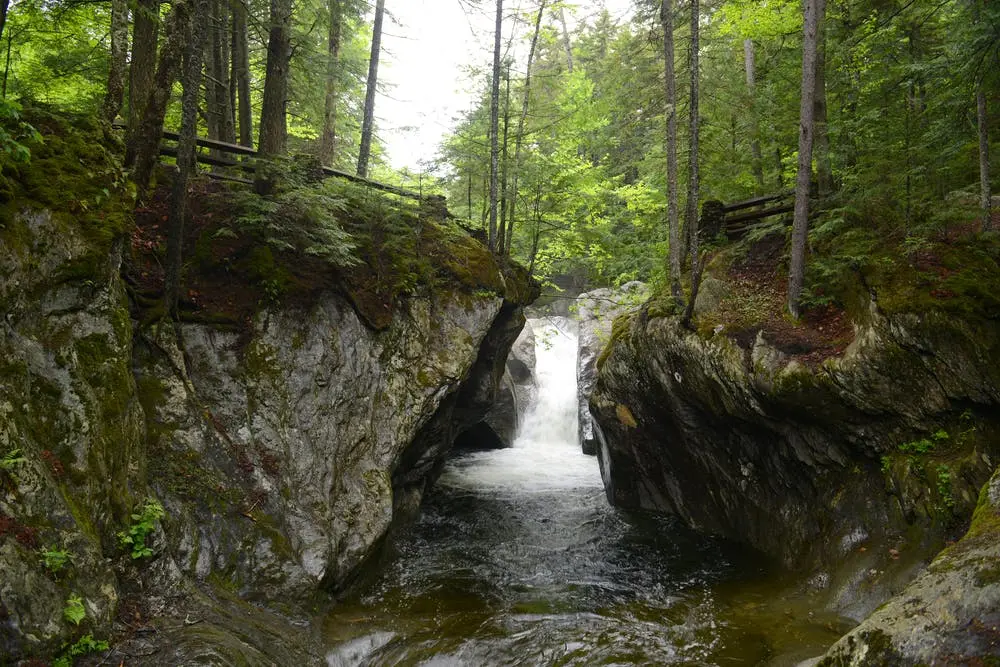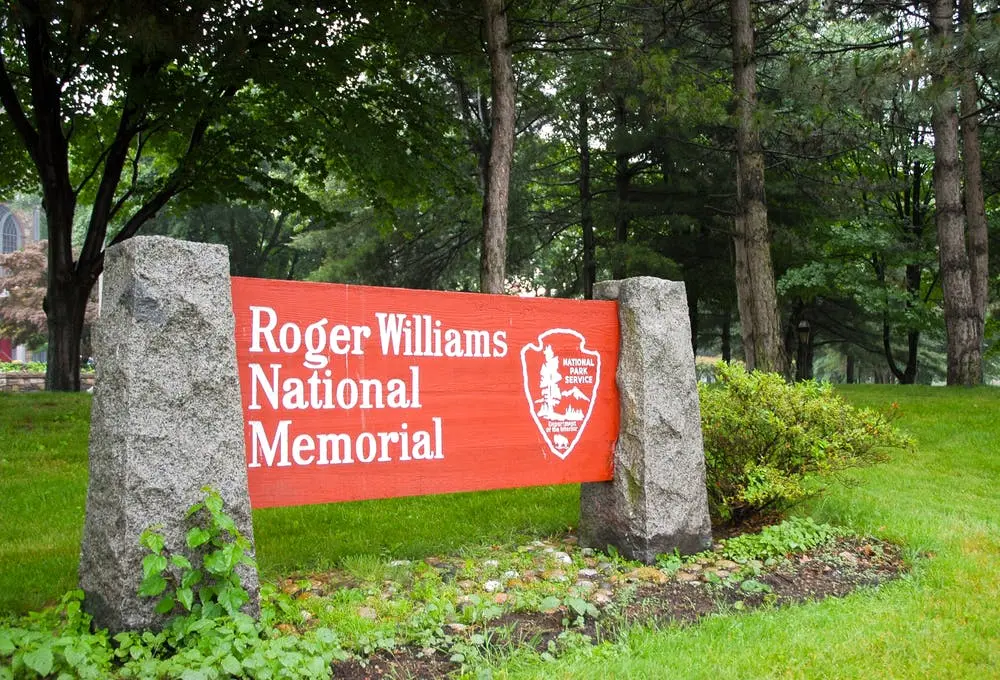When it comes to dumping black and gray water, Melville offers several options. You can find dump stations at Melville Ponds Campground, Paradise Park and Motel, Meadowlark Recreational Vehicle Park, and Second Beach Family Campground. Most of these locations also provide fresh water and a hose for flushing tanks. Additionally, trash bins are available for waste disposal at each site.



Browse motorhome by RV Class in Melville, RI
Class A
Driver should be comfortable driving something as large as a busView all Class A rentals in Melville
Class B
Comparable to driving and maneuvering an oversized vanView all Class B rentals in Melville
Class C
Comparable to driving a truck and popular option for beginner RV driversView all Class C rentals in Melville
Browse towable by RV Class in Melville, RI
Travel Trailer
Trailer options exist for every kind of SUV or pickup tow vehicleView all Travel Trailer rentals in Melville
Popup
Can be towed by ordinary passenger vehiclesView all Popup rentals in Melville
Toy Hauler
Can be towed by many SUV or pickup tow vehiclesView all Toy Hauler rentals in Melville
Popular RV Searches in Melville, RI
Cheap
Under $100 per nightView all Cheap rentals in Melville
Affordable
$100 - $250 per nightView all Affordable rentals in Melville
Luxury
Above $250 per nightView all Luxury rentals in Melville
Delivery
Owners that deliverView all Delivery rentals in Melville
Pet Friendly
Bring your furry friendView all Pet Friendly rentals in Melville
Road Trips Starting from Melville, RI
Best National Parks Near Melville, RI
Acadia National Park, situated in Maine, is a beautiful national park established in January 1929. The park boasts of 49,075 acres of land, including Cadillac Mountain, which is the highest point on the eastern seaboard. Bass Harbor Head Lighthouse and Jordan Pond are other popular attractions at Acadia National Park. The Blackwoods Campground offers more than 300 campsites with amenities such as restrooms and water hookups.Unfortunately, there are no national parks near Melville, Rhode Island. However, if you're willing to drive a bit further, Acadia National Park is an excellent option for RV travellers visiting the northeast region of the United States. Remember that if you do plan to visit Acadia National Park or any other national park in an RV, always check for reservations and campground availability ahead of time. It is also essential to note that some campgrounds may have limited electric, sewer or water hookups available. Enjoy your RV trip to Acadia National Park and take advantage of all the scenic views and exciting activities that this beautiful national park has to offer!
Burlingame State Park is a must-visit park for RVers in Rhode Island. Established in 1930, the park covers over 3,100 acres of woodland and has 755 campsites that are suitable for RVs up to 40 feet in length. The campgrounds offer amenities such as electric and water hookups, showers, restrooms, picnic tables and fire rings. The park also includes a freshwater beach area for swimming, fishing and boating activities.Fort Adams State Park is another popular destination that offers stunning views of Narragansett Bay. It's located on over 200 acres of land with multiple hiking trails to explore. The park has no RV camping facilities, but there is ample parking available for your motorhome rental or travel trailer rental.For those who are interested in coastal scenery and nature watching, Charlestown Breachway State Beach is an excellent option. This state beach is situated on a barrier island between the ocean and salt pond offering both ocean and pond activities including fishing, kayaking, paddleboarding and more. No RV camping facilities are available at this park.Colt State Park is another great choice for outdoor enthusiasts with its beautiful walking trails along the shoreline and through woodlands. Although the park does not offer any RV camping facilities, it provides plenty of parking space to accommodate your camper rental or motorhome rental.Rocky Point State Park provides a historical destination to explore while enjoying breathtaking views of Narragansett Bay. This small state park features walking trails along the shoreline leading up to a rocky point where visitors can watch boats sail by or enjoy picnicking with their family."
National Forests Near Melville, RI
Green Mountain National Forest, located in Vermont, is a 4-hour drive from Melville and offers an abundance of outdoor activities for visitors. With over 800 miles of hiking trails, campgrounds, bird watching spots, stargazing areas, and biking trails available year-round, there's something for everyone to enjoy. Established in April 1932 and covering 399151 acres (1615.31 km2) federal; 421889 acres (1707.32 km2) other lands, this forest encompasses the Sugarbush Resort, Okemo Mountain Resort, and Stratton Mountain Resort.If you're looking for boating activities near Melville instead of skiing or snowboarding options offered by Green Mountain National Forest's resorts, White Mountain National Forest in New Hampshire could be a great option for you. Established in May 1918 and covering an area of 750852 acres (3038.59 km2), it has several lakes that provide opportunities to go boating or kayaking. The forest also has numerous hiking trails that lead to scenic waterfalls and breathtaking views. Make sure to add this destination to your RV trip planner if you're an avid outdoor enthusiast!
As you travel in your RV around Melville, Rhode, there are many national sites and monuments worth visiting. The Touro Synagogue National Historic Site, located in Newport, RI, covers an area of 8712 ft_ and is the oldest synagogue still standing in the US. You can also visit The Breakers, a beautiful mansion built by the Vanderbilt family that overlooks the ocean. If you're interested in tennis, stop by the International Tennis Hall of Fame to learn about the sport's history.Another landmark to visit is the Roger Williams National Monument, an urban park covering 5 acres in Providence, RI. The National Park Service manages this National Monument and offers guided tours of The John Brown House Museum. Additionally, you can take a stroll along Waterplace Park or explore other walking trails in the area.Whether you're interested in history, architecture, or outdoor activities, these national sites and monuments near Melville have something for everyone to enjoy during their RV trip.
Melville, Rhode offers several options for RV campgrounds and parks. Melville Ponds Campground is a popular choice with 100 RV sites featuring full hookups, showers, sports courts and a dog park. Another option is Melville Pond Campground which has full hookups, 30/50 Amp service, and allows pets. If you prefer a smaller campground, Melville Ponds Campground also offers full hookups, showers, and pet friendly facilities. Carr Point Recreation Area is another choice with six RV sites that offer full hookups, back-in/pull-through sites and water view sites. However, pets are not allowed at this location.
RV Rentals Near Melville, RI
Frequently Asked Questions About Renting a Towable RV Near Melville, RI
If I want to rent a towable RV, how do I tell if my vehicle can handle the tow?
Before renting a towable RV, it is essential to ensure that your vehicle can handle the weight and hitch type of the trailer. You can find this information in your vehicle's owner's manual. You will also need to check the Gross Vehicle Weight Rating (GVWR) of the trailer, which can usually be found on a sticker located on the trailer. It is recommended that you do not exceed 80% of your vehicle's maximum tow rating and make sure you have the proper hitch, brake controller, and sway control device.
Are there any limitations on the types of roads or terrain I can navigate with a towable RV rental in Melville, RI?
Yes, there are limitations on the types of roads and terrain that you can navigate with a towable RV rental. It is important to check the RVshare rental agreement to see what types of roads and terrain are permitted. In general, most towable RVs are suitable for paved roads and well-maintained campgrounds. However, some rentals may be equipped with off-road tires, making them suitable for moderate off-road terrain.
Are there any additional insurance considerations or requirements when towing a rental RV, and how can I ensure I am adequately covered?
When renting a towable RV, there are three insurance options in case of an accident or damage. RVshare offers different types of insurance coverage, including liability, collision, and comprehensive. It is recommended that you choose the coverage that best suits your needs.
Do I use a sway control device when towing a RV, and does RVshare provide it, or do I need to bring my own?
A sway control device is highly recommended when towing a RV, especially on highways or in windy conditions. Discuss with the RV owner if this is something you will need. RVshare does not provide sway control devices, but the individual owner might.
What kind of braking system do I need for a towable RV rental, and how do I ensure it is properly installed and functional?
All towable RV rentals require a functioning braking system. There are two types of braking systems: electric and surge. Electric brake systems require a brake controller to be installed in the towing vehicle, while surge braking systems are built into the trailer's hitch. It is important to ensure that the braking system is properly installed and functional before towing. RVshare recommends having a professional mechanic inspect the brakes before renting.
Are any unique features or amenities available in towable RV rentals that may not be found in other RVs in Melville, RI?
The features and amenities available in towable RV rentals vary depending on the unit and the owner's preferences. Some common features found in towable RVs include full kitchens, bathrooms, and sleeping areas. Unique features may include outdoor kitchens, fireplaces, and spacious living areas. It is recommended that you browse RVshare's inventory to find a rental unit that meets your specific needs.
How do I properly load and distribute weight within a towable RV rental to ensure safe and stable towing?
Proper weight distribution is crucial when towing a RV. It is recommended that you load heavier items towards the front of the trailer and distribute weight evenly from side to side. You should also avoid overloading the trailer and keep the weight under the GVWR. It is recommended that you use a weight distribution hitch, which can help balance the weight and provide more stability when towing.
What are the fuel efficiency considerations when towing a rental RV, and how can I minimize the impact on my fuel costs?
Towing a rental RV can have a significant impact on your vehicle's fuel efficiency. It is recommended that you use a towing vehicle with a fuel-efficient engine and avoid driving at high speeds. Additionally, removing any unnecessary weight from your vehicle and trailer can help maximize fuel efficiency. It is also recommended that you maintain a consistent speed and avoid sudden stops and starts.
What kind of maintenance or upkeep do I need on a towable RV rental during my rental period, and what kind of supplies or tools do I need to have on hand for this?
During your rental period you are not responsible for maintenance. Treat the RV with care and maintain cleanliness during your trip.

